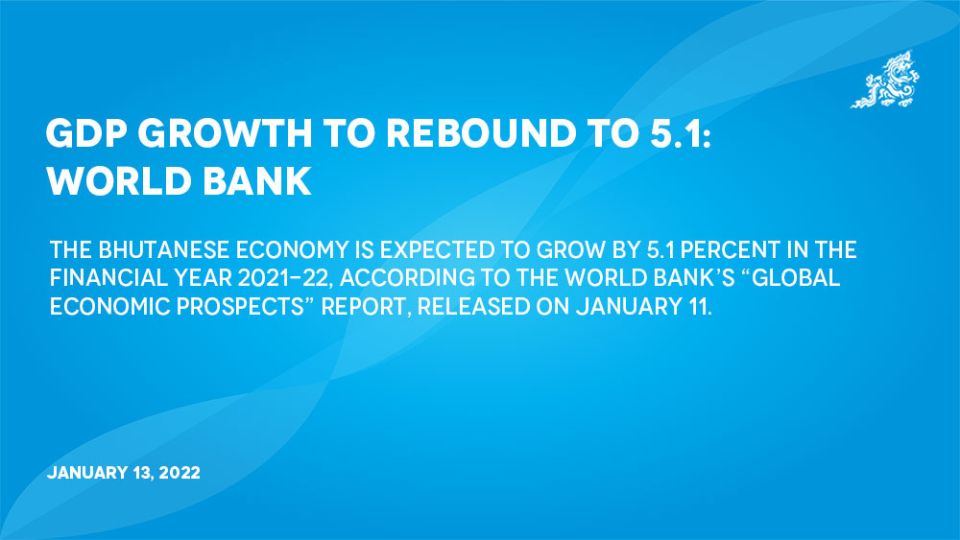January 14, 2022
THIMPU – The Bhutanese economy is expected to grow by 5.1 percent in the financial year 2021-22, according to the World Bank’s “Global Economic Prospects” report, released on January 11.
The report attributes the projected economic growth to a rebound in investment and external demand (exports).
Bhutan’s growth, it states, has been “revised down” because of Covid-19 protocols, delays in infrastructure projects caused by migrant labour restrictions, and a stagnant tourism sector.
According to economists, a strong GDP growth has a large impact on people’s livelihoods, as it fuels job creation and income increases, which lead to increased spending by consumers on goods and services.
However, an official familiar with the issue said that the projected 5.1 percent growth would not be enough for the economy to rebound to the pre-pandemic size.
“The impact of the pandemic has been so strong that the economy needs a large amount of growth to rebound to its pre-pandemic size,” he said.
Bhutan’s economy, he said, was one of the hardest hit in the region because of its small size and the strict Covid-19 measures.
The GDP dropped to Nu 171.57 billion (B) in 2020 from Nu 178.56B in the previous year. The GDP growth rate dropped to an all-time low of -10.08 percent in 2020.
The report states that contact-intensive sectors, like trade and hotels are still below pre-pandemic levels.
The World Bank’s projection is higher than the government’s estimate.
Prime Minister Dr Lotay Tshering in a recent meeting with the press said that the economic growth in 2021 would be neutral or zero percent.
However, the government’s estimation is for the calendar year 2021, while the World Bank’s projections for the fiscal year 2021-22.
According to the World Bank report, the economic growth of Bhutan’s neighbour, India, is expected to be 8.3 percent in the current financial year and 8.7 percent in 2022-23.
The economic damage brought about by the second wave in India has already been unwound, with output returning to pre-pandemic levels, according to the report.
The economy of Bangladesh, one of the major trading partners of Bhutan, is expected to grow at 6.4 percent in the fiscal year 2021-22, according to the report.
“An improvement in domestic demand and resumption of exports contributed to strong growth in Bangladesh,” it states.
The report also highlights the challenges posed by climate change that has bearings on agricultural production, inflation, and GDP growth in South Asian countries, including Bhutan.
“Climate risks are becoming more prevalent in South Asia as cyclones, floods, and droughts have become more frequent and as the costs of such events have increased.”
“The world economy is simultaneously facing Covid-19, inflation, and policy uncertainty, with government spending and monetary policies in uncharted territory,” the World Bank stated.
The report states that the rapid spread of the new variant indicates that the pandemic will likely continue to disrupt economic activity in the near term.

